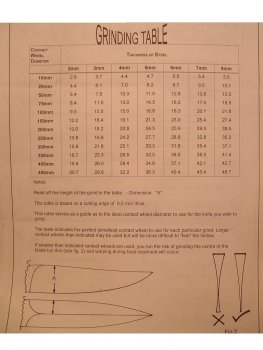RodneyJ
Well-Known Member
I have just started trying to get things together for my NWG build. I was thinking about an 8 inch contact wheel. So I started doing some looking and it seems there is more to it than just buying an 8 inch wheel. can some one please explain the different types of material and designs and what applications they are used in.
Thanks and God Bless
Rodney
Thanks and God Bless
Rodney


